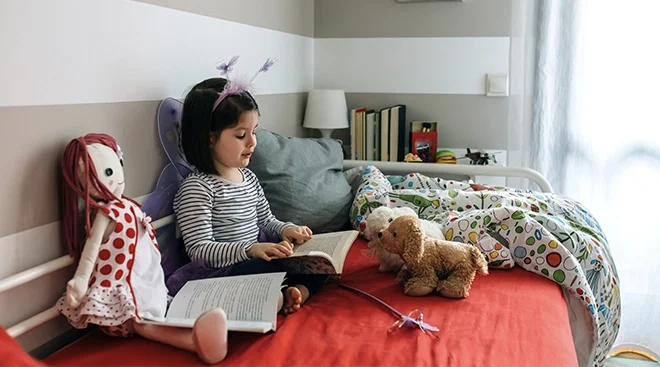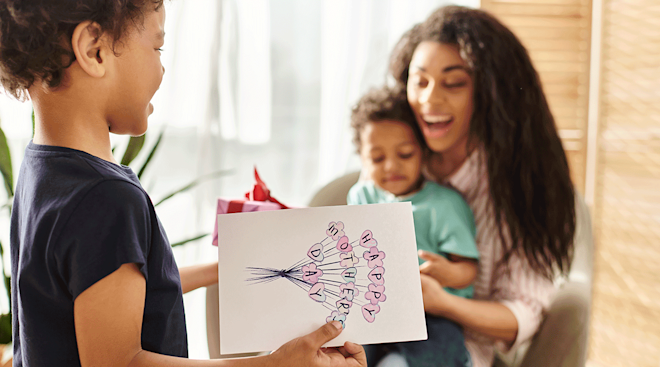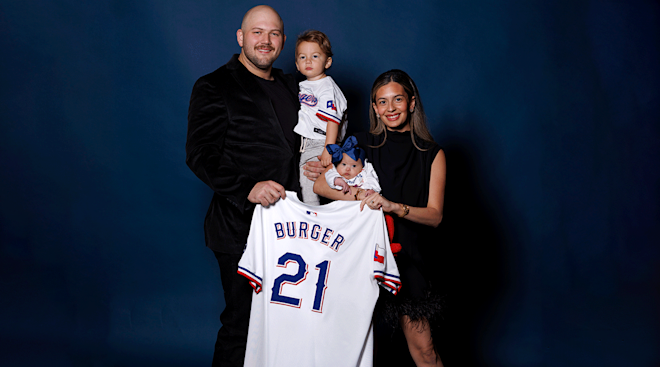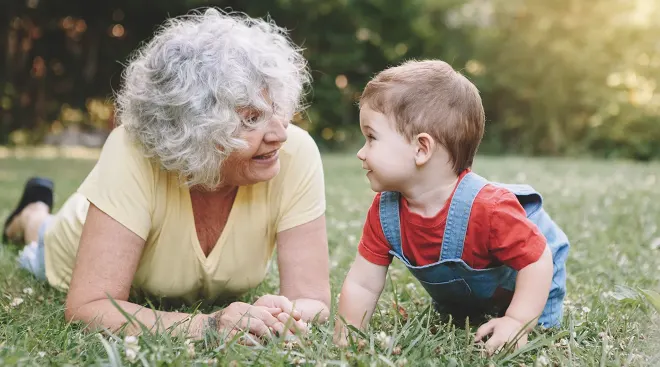Why It’s Normal for Kids to Have Imaginary Friends
If you’ve heard your child talking to someone alone in their room—only to realize there’s no one there—you’re not alone. Contrary to what many Hollywood horror films would have you believe, imaginary friends are incredibly common and a completely normal part of early childhood development. Below, learn from the experts why kids have imaginary friends and how to best support your little one’s growth.
The big question many parents ask: Why do children have imaginary friends? According to Sanam Hafeez, MD, a neuropsychologist based in New York City, it has to do with several aspects related to early childhood development, primarily imagination and emotion management. Here are the two biggest reasons little ones develop an imaginary friend:
1. It encourages creativity and leadership. It’s no secret that young children have an abundance of energy and often put their creativity on display. Imaginary friends are a great way for kids to use their imaginations. Not only have they made up a new playmate, but they may also imagine toys and games for the two of them to play together. “Using their creativity is positive for their mental and emotional health,” Hafeez explains. “It allows your child to practice leadership skills and be inventive with the things they do. It’s a good rehearsal for real-life interaction.”
2. It fills an emotional need. Hafeez says imaginary friends may keep the child occupied if they’re bored or lonely. Even if your little one has siblings, having an imaginary friend can offer some level of control over the games played, whose turn it is and more. “When a friend is imaginary, a child can conjure the ‘perfect entity,’” Hafeez says. “It’s a fallacy that imaginary friends are relegated to only children.” Sometimes imaginary friends also “appear” when a child is going through a stressful time like moving to a new town. While they can’t control the changing situation around them, they can control their imaginary friend. Plus, imaginary friends provide a great support system for your little one, as they’re always around and don’t judge or criticize, Hafeez says.
Decades ago, imaginary friends got a bad rap, putting their creators under the microscope, but contrary to that belief it’s completely normal—and very common—for little ones to have imaginary friends. A 2004 study conducted by psychologists at the Universities of Washington and Oregon found that by age 7, 65 percent of children have had an imaginary friend. Aside from being normal, studies have also found that children with imaginary friends have higher emotional understanding, as well as meaningful development in inner speech and cognition.
The age range for having an imaginary friend is a large one. It’s normal for kids to have imaginary friends at the toddler and preschool age, says Tammy Gold, licensed therapist, certified parent coach, and founder of the Tammy Gold Nanny Agency. Hafeez agrees, adding that imaginary friends can start with children as young as 30 months old. According to a 2005 study from the American Psychological Association, imaginary friends often surface around age 4 and can last well into school age—around 9 years old. “Most imaginary friendships wane as the child becomes more interested and invested in having a real-life social peer group,” Hafeez explains.
While it can be disconcerting to watch your little one speak to someone who isn’t there, it’s important to encourage their creativity. Gold advises parents not to worry or overly emphasize imaginary friends. Instead, ask questions about them and allow your child a chance to offer insight into their thoughts and feelings. “They might project their fears or anxieties onto the ‘friend,’” Hafeez says. “It’s wise for parents to listen and observe the interaction taking place.” Plus, by asking questions, you’re also helping to foster their creativity. If the imaginary friend is doing no harm, then let your child run with it.
When do imaginary friends indicate a problem?
Both Gold and Hafeez note that imaginary friends only indicate a problem if your little one uses them to replace social interaction in real life. For example, if your kiddo prefers to play with their imaginary friend over their peers or uses their imaginary friend to speak and act for them, this could signal an issue. “Imaginary friends are usually benign in a young child’s life, unless they only want to engage that way,” Hafeez says. “In that instance, parents should question whether social anxiety, bullying or depression are factors. Get feedback from your child’s school.”
Imaginary friends may also offer parents insight into any behavioral problems that come up, Hafeez adds. For example, if your child directs their friend to behave in a manipulative way or, uses them to disobey rules or as an excuse to display rude behaviors. “As parents, don’t give the imaginary friend a pass on bad behavior as [something] for a child to hide behind,” Hafeez says. “Sometimes children will test boundaries with their parents (or even teachers) via their imaginary friends. Children must realize that they are responsible for the behaviors of their imaginary friend.”
Above all, like with many other aspects of parenting, trust your gut. “If your gut instinct tells you there might be an issue, seek help from a mental health professional,” Hafeez says.
Just like other developmental phases, as a child grows, the phase of imaginary friends will eventually disappear. All kids develop at their own speed, and all kids say goodbye to their imaginary friends at their own pace. If you force them to do it before they’re ready, you may be doing more harm than good for their development. As long as your kiddo’s imaginary friend isn’t resulting in any negative behaviors, stick with it and know that, like the rest, this phase will pass.
About the experts:
Tammy Gold, LCSW, MSW, CEC, is a licensed therapist, certified parent coach, author and the founder of the Tammy Gold Nanny Agency. She has over 20 years of experience and received her bachelor’s degree from the University of Pennsylvania and her master’s degree from Columbia University.
Sanam Hafeez, MD, is a neuropsychologist based in New York City and the founder of Comprehensive Consultation Psychological Services (CCPS), which supports mental health advocacy and special education. She received her doctorate at Hofstra University and completed her post-doctoral work in neuro-developmental psychology at Coney Island Hospital. She’s also part of Columbia University’s faculty for their Ph.D. program in clinical psychology.
Please note: The Bump and the materials and information it contains are not intended to, and do not constitute, medical or other health advice or diagnosis and should not be used as such. You should always consult with a qualified physician or health professional about your specific circumstances.
Plus, more from The Bump:
Navigate forward to interact with the calendar and select a date. Press the question mark key to get the keyboard shortcuts for changing dates.




















































